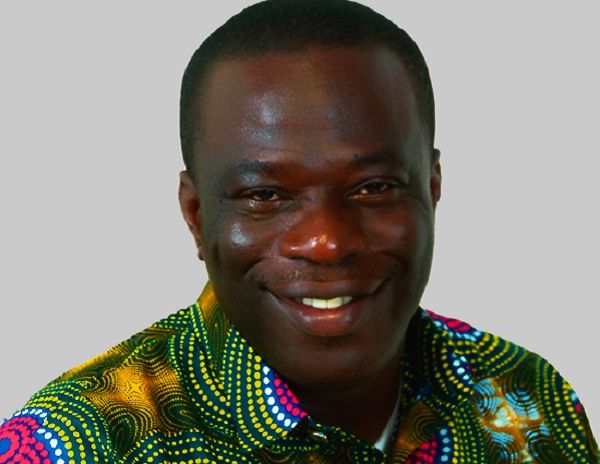
Is Ghana ready for global employment transition?
On January 22, 2019, the International Labour Organisation (ILO) started its centenary celebrations with the launch of a Global Commission Report on the Future of Work.
Before the launch of the Global Commission Report, the ILO had established a 25-member Independent Member Commission in 2017 as part of efforts to plan the celebrations slated to take place from June 10 to June 21, 2019.
Advertisement
The commission was co-Chaired by the South African President, Cyril Ramaphosa, and the Swedish Prime Minister, Stefan Lofven.
The commission was to, among other things, consider issues such as the new forms of work, institutional ramifications of the changing nature of work, lifelong learning, the role of universal business and social protection in a stable and just future of work.
Basically, the Global Commission on the Future of Work was to examine how to achieve a better future for all at a time of unprecedented change and exceptional challenges in the world of work.
The 25-member commission was made up of leading global figures from business, trade unions, think-tanks, government and non-governmental organisations among others.
Transformation in world of work
According to the ILO’s global research, it has become obvious that the world of work is undergoing significant changes and this transformational change is as a result of technological advances.
The technological advancement encompasses artificial intelligence, digitisation, innovation, automation, robotics etc.
The situation is such that sooner or later, most people in work today risk the likelihood of losing out on their jobs, while at the same time new job opportunities requiring new skills will be created.
It is becoming clear that workers who fall within disciplines such as teaching, driving, secretaries, security and medicine are likely to become redundant sooner than later.
Therefore, if persons involved do not upgrade themselves with other skills to catch up with what the transition of rapid globalisation and its associated transformation portend, then they may become redundant.
For example, robots are now taking over some areas of the work of humans in countries such as America, China, Russia, Japan and others.
In addition, one Judith Rodin, the President of the Rockefeller Foundation (2005- 2017), forecasts that 40 per cent of the workforce in the United States of America (nearly 60 million workers) will become freelance by 2020.
Thus, in order to capitalise on new opportunities that the future of work brings, as well as respond to the challenges, it is essential that employers and employees begin to prepare themselves for the anticipated changes.
The question, therefore, is: Is Ghana prepared to cope with this global employment transition?
No one can see the future but we can still make sure that we are not blindsided when it arrives.
So what is Ghana doing after the release of the Global Commission Report on the Future of Work to ensure that we are not caught wrong-footed?
As part of preparations for the ILC, the Ghana team, led by the Minister of Employment and Labour Relations, Mr Ignatius Baffour Awuah, organised a stakeholders meeting on the Global Commission Report at the ministry’s conference room.
The platform was for the social partners, being the government, the Ghana Employers Association and Organised Labour to discuss what the current labour market situation of this country is and take a position as a tripartite team to inform discussions during the conference.
One of the presentations, led by Prof. Baah Boateng, a Labour Economist of the University of Ghana, revealed the 2017 labour statistics for Ghana as 10,864,766, representing 93 per cent employed Ghanaians, while those unemployed were 815,218, representing seven per cent.
Prof. Boateng noted that Ghana needed to study unemployment trends and the pattern of demand and supply in response to growth and the skills dimensions of graduates output to be able to plan for the future of work for the Ghanaian economy.
He observed that Ghana must begin to focus on the type of education and training that would make us cope with the transition.
The training, he said, must be for specific employment such as vocational and technical training and also training that would make people adapt to the changes in the labour market.
Mr Kwamina Amoasi-Andoh, a former ILO Project Manager on the ILO SCORE Project and currently an ILO expert and consultant, also added that Ghana’s social partners must have a social contract which would encourage a human-centred agenda, increased investment in people’s capabilities, increased investment in institutions, as well as a sustainable and decent work.
He said the ILO’s research on the future of work was structured around four thematic areas, namely work and safety, decent jobs for all, the organisation of work and production and governance of work.
Mr Amoasi-Andoh suggested roles and responsibilities to be assumed by the government and its social partners to ensure decent work and the loss of jobs to the developed countries which were able to adapt and train their human resources in readiness for the future of work.
He cited for example that if a factory in Ghana employed robots on the factory floor in the manufacturing processes, it meant the humans would be shifted to the design, development, control and maintenance of the robots.
Therefore, if Ghanaians have no technical expertise to be employed to support this factory, then the job loss will benefit China, India and other countries with the capabilities required.
He, therefore, appealed to the government and its social partners to collaborate to improve technical, vocational and managerial education in the country to prepare our human resource for the future of work.
The writer is Staff of Information Services Department and Public Relations Officer of the Ministry of Employment and Labour Relations.



